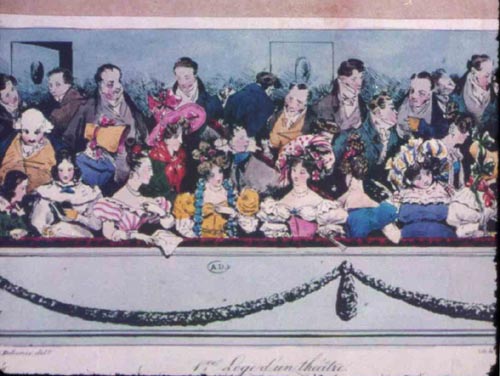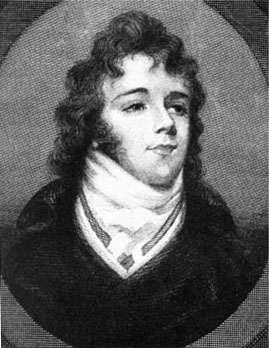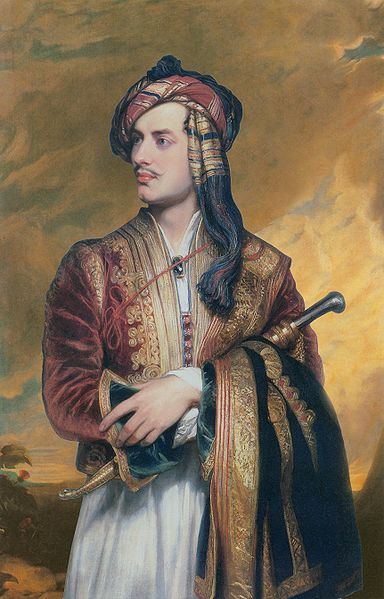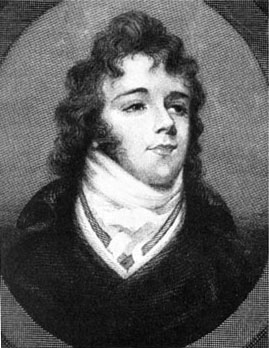 King Charles’s breed. This curious appendage was dressed in man’s clothes, and she looked pretty, in spite of her ebony hue and crimson trousers. I did not learn her exact history, which must have been a curious one. It was whispered (no doubt the scandal of some white woman) that her lover had rescued her from the jaws of a crocodile on the banks of the Nile!
King Charles’s breed. This curious appendage was dressed in man’s clothes, and she looked pretty, in spite of her ebony hue and crimson trousers. I did not learn her exact history, which must have been a curious one. It was whispered (no doubt the scandal of some white woman) that her lover had rescued her from the jaws of a crocodile on the banks of the Nile!
After the King’s visit to Hanover, Brummell, at various intervals, tried to induce some of his powerful friends to interest themselves in obtaining an appointment for him, and at length the Duke of York undertook to advocate his cause with Mr. Canning, and endeavour to prevail upon him to give effect to his wishes. The minister replied, that if His Royal Highness insisted on it he would do so, but that he could not recommend Mr. Brummell’s name to His Majesty on his own responsibility; and this attempt failed. At a later period Lord Alvanley, knowing the distressed state that he was in, applied to the Duke of Wellington, who was then in power, and who good-naturedly undertook to mention the subject to William the Fourth.
BRUMMEL GETS ROYAL APPOINTMENT
A paper of the day stated, that when the Whigs came into office, Brummell wrote to Lord Grey, and to several of his other friends of that party, imploring them to do something for him, and that he owed his situation to that nobleman. But the Whigs did not assume the reins till 1831 : and Brummell himself always said, that he owed his appointment entirely to the ” favourable consideration of the commander-in-chief.” The result was, that, on the loth of September 1830, he was entrusted with the extensive commercial interests of the British nation, in the capital of Lower Normandy. The remainder of his days were to be devoted to the inspection of persons with fronts e’erase’s, cheveux roux, sourcils idem, ycux grisalres, nez retrousse’s, and visages bourgeonnis; and his lecture to the verification of passports, bills of lading, invoices, and mercantile papers of all kinds.
THE DANDY’S DEBTS HAUNT HIM
His very success in obtaining this consulate was, however, the source of fresh difficulties to him, for he could not leave the town till all his debts were paid, and they then amounted to a very large sum. His creditors were far from being urgent in their demands, as long as it was likely that he would remain amongst them, but they were not at all inclined to part with them without a settlement of their accounts. To meet their demands he had a sale of his buhl furniture, which sold for a considerable sum. His Sevres china had been bought some time before by Mr. Crockford, junior, then an auctioneer; who, according to his own statement, went over to Calais solely for the purpose of making this purchase. Mr. Crockford described this china as ” the finest and purest ever imported into England.” George the Fourth gave two hundred guineas for one tea-set, and a pair of the vases was sold for three hundred pounds. Some of these rare specimens of porcelain are now in the possession of the Duke of Buccleuch. But the money raised by the sale of his buhl was insufficient to satisfy half the claims against him, the account of his banker, Mr. Leveux, alone being at this time twelve thousand francs on the wrong side.
It may appear strange that this gentleman should have advanced so large an amount on mere personal security, but it must be borne in mind that during Brummell’s residence at Calais, particularly in the early part of it, large sums were lodged in Mr. Leveux’s hands by him; his prepossessing manner also (for Mr. Leveux, like Mr. Leleux, said that “on ne pourrait rien lui refuser “) was another inducement, as well as the circumstance of his being always seen in the company of every man of rank who came into the town. Many of them cashed their bills by Brummell’s introduction at his bank, and it was perhaps this which induced Mr. Leveux to accommodate him. A running account was therefore established between them, which, agreeably to the advice given to his friend from the window, was always in advance, and amounted by degrees to the sum already mentioned. His other liabilities were as follows:
Francs.
To his valet, Frangois Se’legue, for house
expenses and et ceteras . . .6162 Bill at Dessin’s for dinners . . . 3488
Lefevre, hatter 54
Lamotte, \
Pion, \^OIS 373
Baudron,
Samson,
Lafond Bressell, \
Bonvarlet, I upholsterers . . 75
Lemoine, J
Parque” Waillier, draper …. 309
Ducastel, decorator of ceilings … 24
Desiardins. ) . ,,
_, . , ‘ > jewellers . … 35
Boissard, JJ .”
Fasquel, bootmaker 150
Piedfort, pemiquier. …. 8
Washerwoman. . . . . .100
Fille de chambre ….. 50
Isaac Pecquet, banker …. 500
Cr. o Dr. 11504
The two tailors, Pion and Lamotte, were tyros in the art, and were only entrusted with repairs. His principal artiste in the way of clothes was a man of the name of Gaussin, who had been a prisoner in England, and returned to Calais after the peace in a very miserable condition. Finding that he had talent, Brummell patronised him; this led others to do so, and the pauvre prisonnier was enabled, shortly after the Beau’s departure, to retire to his ” otium” and cabbages in the country. In fact, most of those who had any pecuniary transactions with Brummell were well paid; and when, like Gaussin, they were the objects of his patronage, made their fortunes. Two chemists’ bills also swell the list of small creditors; but the reader need not fancy that he went to them for tonics, the barrel of Dorchester ale supplied the place of their villanous drugs: his sympathy on the score of health is not required just yet: their bills were simply for huile antique and cold cream. Three upholsterers look very like the departure of the buhl furniture and the ladies of his harem; and the last item shows that in every possible instance he kept all his bankers in advance. The consumption of one hundred and seventy-six francs’ worth of oils and cold cream, offers a pretty example of the extravagant character of his ordinary habits in dress.
 Admiration of the hydropathic cure is now the fashionable medical epidemic; and though prodigality is not separately named in the long list of maladies which Mr. Claridge has assured us may be cured at Graffenberg, there can be but little doubt that, as this disease is a mere species of madness, it might be successfully treated there. Two or three months of the doctor’s mild but invigorating system of sitz baths, douche baths, curds and whey, wet sheets, sour krout, and hewing wood, would have been of infinite service to the Beau; and, cured, like a Westphalian ham, he would have arrived at Caen a perfect specimen of prudence and economy; unfortunately, however, the planet Priessnitz had not then risen to us.
Admiration of the hydropathic cure is now the fashionable medical epidemic; and though prodigality is not separately named in the long list of maladies which Mr. Claridge has assured us may be cured at Graffenberg, there can be but little doubt that, as this disease is a mere species of madness, it might be successfully treated there. Two or three months of the doctor’s mild but invigorating system of sitz baths, douche baths, curds and whey, wet sheets, sour krout, and hewing wood, would have been of infinite service to the Beau; and, cured, like a Westphalian ham, he would have arrived at Caen a perfect specimen of prudence and economy; unfortunately, however, the planet Priessnitz had not then risen to us.
But Brummell was not only prodigal of his cold cream, but of his promises, and when his cash was low, no one in Calais was more prompt to make them, or to attach his signature to a list of subscribers for any purpose, than he was. In 1829, when a collection was made for the erection of an Episcopal chapel in that town, the person appointed to go round did not omit to pay him a visit and request his support.














